Announcement of the Law on Teachers
On the morning of July 11, the Office of the President held a press conference to announce the order of the President of the Socialist Republic of Vietnam promulgating the Laws passed by the 15th National Assembly at the 9th Session, including the Law on Teachers.
Speaking at the press conference, Permanent Deputy Minister of Education and Training Pham Ngoc Thuong said: The Law on Teachers consists of 9 chapters and 42 articles, taking effect from January 1, 2026.
The provisions of the Law on Teachers focus on five major policies on teachers approved by the Government , including: identification of teachers; standards and titles of teachers; recruitment, use and working regime of teachers; training, fostering, treatment and honoring of teachers; state management of teachers.
For the team of more than one million teachers nationwide, the Law on Teachers is an important legal corridor, creating more complete and better policies so that teachers can work with peace of mind and dedicate themselves to their profession.
For the education sector, the Law on Teachers affirms the position and proactive role of the sector in recruiting, using, managing and developing the teaching staff; creating more favorable opportunities for the education sector in managing the sector and developing the teaching staff.
In particular, the Law unifies the authority for the Education sector to take the initiative in recruiting teachers, decentralizes recruitment authority to the heads of public universities and vocational training institutions to autonomously recruit teachers.
The Law assigns authority to the Minister of Education and Training to regulate the authority to recruit teachers in preschool, general education, and continuing education institutions.
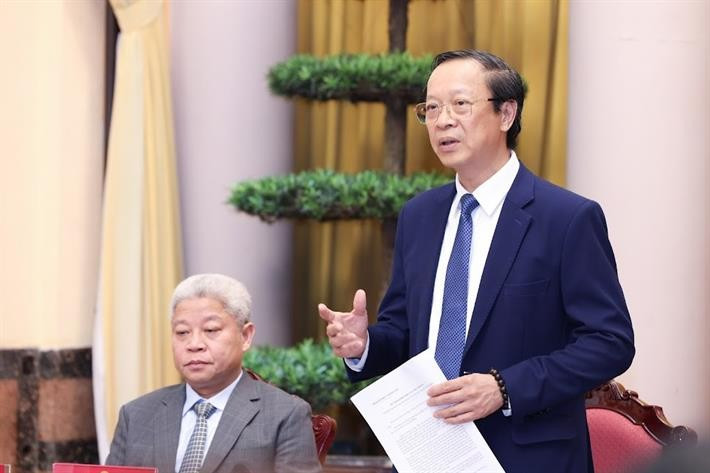
Delegating authority to the education sector in recruiting and using teachers is an important adjustment step to remove "bottlenecks" in policies for teachers, especially solving the problem of surplus and shortage of staff; proactively coordinating and planning short-term, medium-term and long-term staff development plans in the future.
The Law also stipulates that the Ministry of Education and Training is the presiding agency in coordinating with ministries, ministerial-level agencies, and provincial People's Committees to develop strategies, projects, and development plans, and the total number of teaching staff under its management authority to submit to competent authorities for decision; coordinate with ministries, ministerial-level agencies, and provincial People's Committees to propose to competent authorities to approve the number of teaching staff in public educational institutions.
According to Permanent Deputy Minister Pham Ngoc Thuong, immediately after the National Assembly approved the Law, the Ministry of Education and Training urgently developed and completed documents guiding the implementation of the Law on Teachers, including 3 Decrees and nearly 20 Circulars under the authority of the Minister of Education and Training and relevant ministries (Ministry of National Defense, Ministry of Public Security) to promptly promulgate and take effect at the same time as the Law on Teachers on January 1, 2026.
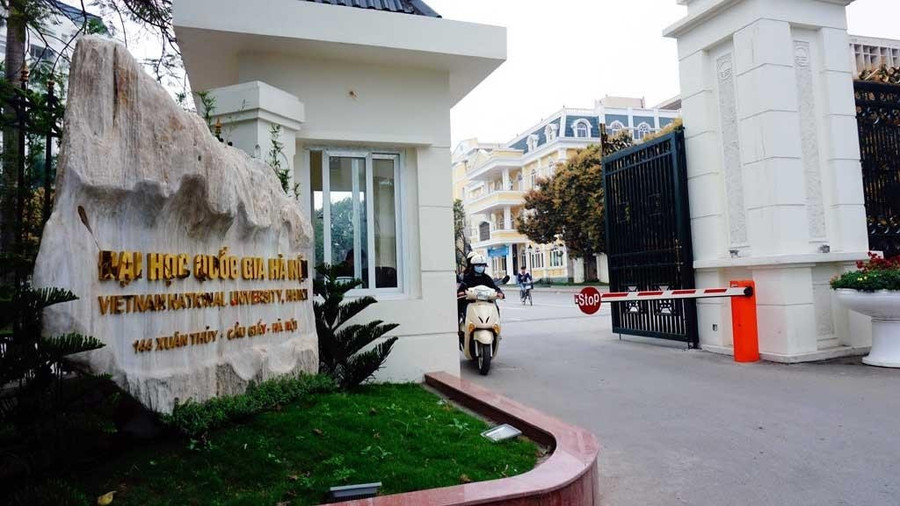
Transfer 2 National Universities to the Ministry of Education and Training for management
The Government issued a Decree regulating the functions, tasks and powers of the National University. Accordingly, the National University is a public higher education institution managed by the Ministry of Education and Training, has legal status, has its own account and uses a seal with the National Emblem.
Regarding personnel, the National University carries out personnel procedures to report to the Ministry of Education and Training to submit to the Prime Minister for appointment and dismissal of the Chairman of the Council, Director, Deputy Director...
National universities have issued regulations on working regimes for lecturers and researchers to attract and promote high-quality human resources.
In training, the National University is allowed to develop training regulations for all levels of higher education and report to the Minister of Education and Training for promulgation in accordance with the provisions of the Law on Higher Education and relevant legal provisions.
In particular, the National University is a level I budget unit assigned by the Prime Minister to budget estimates. The National University will uniformly manage the allocation and assignment of budget estimates to member units, affiliated units and subordinate units, and be responsible for accounting and budget settlement of the National University in accordance with current state budget laws.
Currently, the country has two national universities: Hanoi National University and Ho Chi Minh City National University.
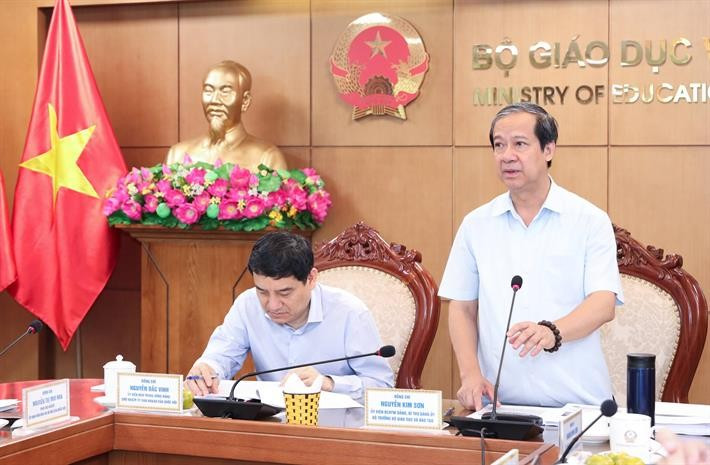
Suggestions for amending laws on education
Last week, workshops and meetings continued to take place to collect opinions on the Law on Higher Education (amended) and the Law on Vocational Education (amended).
On the morning of July 12, in Hanoi, the Ministry of Education and Training worked with the National Assembly's Committee on Culture and Society on the draft Law on Higher Education (amended) and the Law on Vocational Education (amended).
Implementing the National Assembly's 2025 legislative program, the Ministry of Education and Training has completed the process of drafting the Law on Higher Education (amended) and the Law on Vocational Education (amended), submitting them to the Government for approval at the Special Session on Lawmaking on June 21, 2025.
In accordance with the process of drafting laws, the Ministry has drafted the Law on Higher Education (amended) and the Law on Vocational Education (amended).
In recent times, the Ministry of Education and Training has organized seminars, sought opinions from experts and educational institutions, as well as consulted and collected opinions from scientists in working sessions with subcommittees of the National Council for Education and Human Resources Development.
Giving comments at the working session on the two draft laws, Chairman of the National Assembly's Committee on Culture and Society Nguyen Dac Vinh emphasized the flexibility in training organization models and the need to design a legal framework suitable to reality.
Mr. Nguyen Dac Vinh proposed studying a more flexible training licensing mechanism, allowing qualified educational institutions to train at many levels, contributing to better meeting local human resource needs and avoiding wasting resources.
Regarding vocational education, Mr. Vinh recommended that there should be a clear distinction between types of degree training (college, intermediate, elementary) and short-term vocational training programs and certificates to have appropriate management methods. At the same time, he emphasized the important role of enterprises in coordinating with educational institutions, in order to improve training quality and closely link with actual labor needs.
Regarding higher education, Mr. Vinh proposed that there should be regulations for the Ministry of Education and Training to directly manage a number of specific training fields such as medicine, pedagogy and law, and at the same time recommended having a legal corridor to implement policies to support doctoral training, such as tuition exemption and scholarships, to improve the quality of high-level human resources. He also supported reviewing and evaluating the credit-based training model to make appropriate adjustments in the future.
Thanking the opinions and suggestions of the National Assembly's Committee on Culture and Society, Minister Nguyen Kim Son emphasized that submitting two draft laws at the same time is an opportunity to review, compare and perfect them synchronously.
The Minister proposed to add major principles in the Law so that when the guiding decree is issued, these principles will not be changed, ensuring consistency. The review of all regulations related to the rights of autonomous units is also required to be strictly implemented.
The Minister emphasized that the Law needs to ensure two goals: strengthening the orientation to serve the national strategy on human resources and science and technology, while still maximizing the creativity and initiative of educational institutions, scientists and lecturers. The model of clear role division between public and non-public schools, between market and command, is also an orientation that needs to be institutionalized in this law revision.
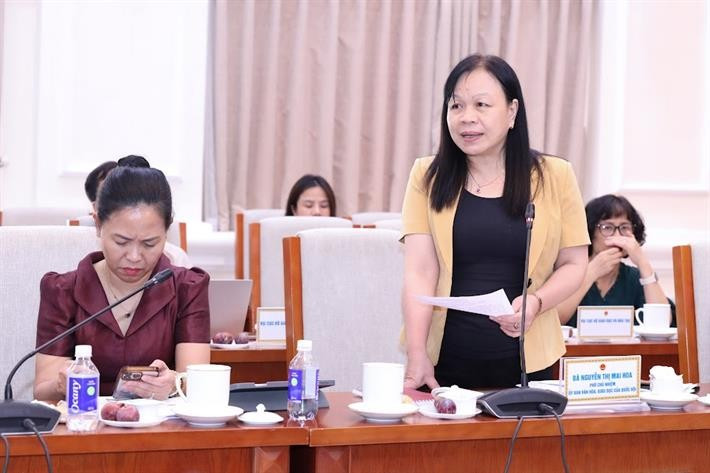
On the morning of July 9, at the Ministry of Education and Training, the Vocational Education Subcommittee and the National Council for Education and Human Resources Development held a meeting to comment on the draft Law on Vocational Education (amended). Deputy Minister Hoang Minh Son chaired the meeting.
One of the most interesting contents at the meeting was the inclusion of the vocational high school model in the draft Law. Dr. Le Truong Tung, Chairman of the Board of FPT University, commented: This draft has many breakthroughs, in which the vocational high school program is a big step forward, contributing to effective streaming and expanding learning opportunities for students after junior high school.
However, Dr. Le Truong Tung also expressed concern when the vocational secondary school program is regulated to be equivalent to high school in terms of diploma, but does not organize a graduation exam. This, according to him, needs to be considered to ensure fairness and consistency between training systems.
Sharing the same view, Ms. Nguyen Thi Thu Dung - Principal of Thai Binh Medical College suggested that it is necessary to clearly define the content ratio of vocational secondary school program, in which at least 2/3 of the time should be spent on general culture, 1/3 on vocational training. This not only helps students have enough knowledge to take the university entrance exam if needed, but also ensures vocational skills at the appropriate level.
Vice Chairwoman of the National Assembly's Committee on Culture and Society Nguyen Thi Mai Hoa assessed: The vocational secondary school model can help remove bottlenecks in streamlining and connection, but it is necessary to clearly define whether to build new or convert existing secondary schools. The implementation must be prepared synchronously in terms of curriculum, facilities and teaching staff.
Concluding the meeting, Deputy Minister of Education and Training Hoang Minh Son emphasized: The revised Law on Vocational Education not only replaces the current Law but also must demonstrate a long-term vision, meeting development requirements in the context of strong international integration and digital transformation.
According to the Deputy Minister, determining the scope of the Law is very important. It is necessary to clarify that vocational education only includes levels within the national education system such as primary, intermediate, vocational secondary and college. Vocational training forms provided by enterprises and international organizations are not within the scope of the Law, because the State cannot manage all vocational training models outside the system.
At the same time, the Law needs to create a basis for recognizing skills and training certificates, thereby promoting lifelong learning and increasing the competitiveness of workers.
Regarding the vocational high school model, the Deputy Minister said that it is possible to name it according to the specific field such as "technical high school", "art high school", etc. depending on the training orientation. The most important thing is to ensure a suitable program, a team with solid expertise and a clear implementation roadmap.
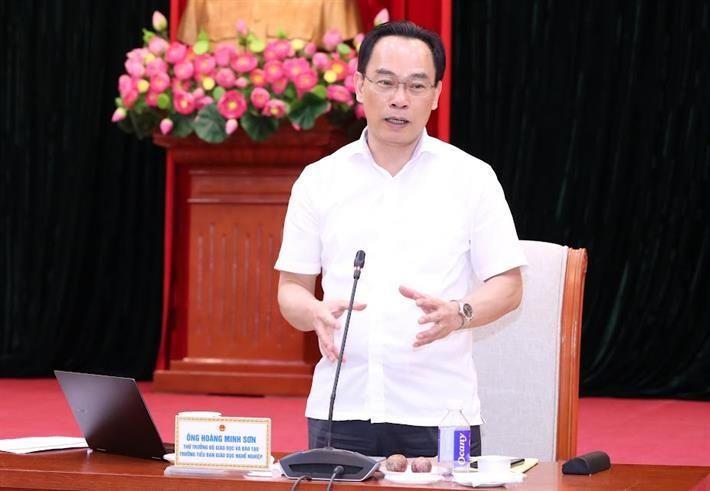
On the afternoon of July 9, the Higher Education Subcommittee of the National Council for Education and Human Resources Development held a meeting to comment on the draft Law on Higher Education (amended). Deputy Minister Hoang Minh Son also chaired this meeting.
Speaking at the meeting, Dr. Pham Do Nhat Tien, former Assistant Minister of Education and Training, highly appreciated the efforts of the Drafting Committee in drafting the Law on Higher Education (amended). According to him, the draft clearly demonstrates the spirit of institutional innovation, aiming to build a legal corridor and create development for higher education. If promulgated in accordance with the current spirit, the draft will open up a spacious space for the sustainable and flexible development of Vietnam's higher education.
Associate Professor Dr. Ho Xuan Nang, Chairman of Phenikaa University Council, assessed that this draft has updated many professional contents, added new points, and is suitable for practice from the perspective of higher education institutions.
Mr. Le Huy Hoang, Deputy Director of the Department of Education, Central Propaganda and Mass Mobilization Commission, proposed that the draft should have a separate chapter regulating artificial intelligence (AI) in higher education, non-profit private higher education; at the same time, add regulations on the job positions of professors and associate professors to effectively promote this human resource.
Concluding the session to provide comments on the draft Law on Higher Education (amended), Deputy Minister of Education and Training Hoang Minh Son affirmed: The Ministry will fully absorb all comments and contributions, ensuring that the Law is truly a tool to create, accompany and promote the development of the higher education system.
On the afternoon of July 6, the Ministry of Education and Training announced the answers for all subjects of the 2025 high school graduation exam according to both programs: GDPT 2018 and GDPT 2006. According to regulations, the exam results will be announced at 8:00 a.m. on July 16. After knowing the scores, candidates have 10 days to review if needed, from July 16 to July 25. Candidates wishing to enter university will register and adjust their wishes an unlimited number of times on the Ministry's common system from July 16 to 5:00 p.m. on July 28.
Source: https://giaoducthoidai.vn/nong-trong-tuan-cong-bo-luat-nha-giao-nghi-dinh-moi-ve-dai-hoc-quoc-gia-post739580.html




![[Photo] Da Nang: Water gradually recedes, local authorities take advantage of the cleanup](https://vphoto.vietnam.vn/thumb/1200x675/vietnam/resource/IMAGE/2025/10/31/1761897188943_ndo_tr_2-jpg.webp)
![[Photo] Prime Minister Pham Minh Chinh attends the 5th National Press Awards Ceremony on preventing and combating corruption, waste and negativity](https://vphoto.vietnam.vn/thumb/1200x675/vietnam/resource/IMAGE/2025/10/31/1761881588160_dsc-8359-jpg.webp)


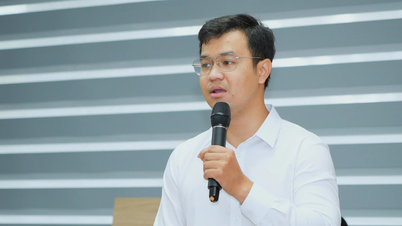

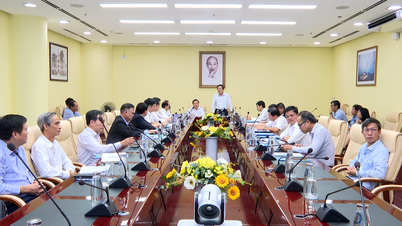


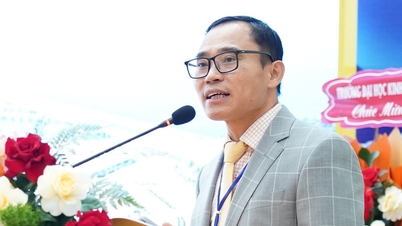
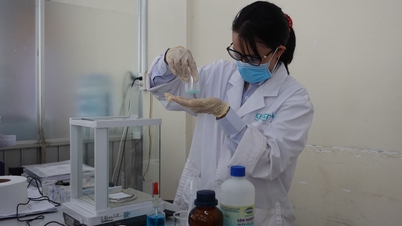

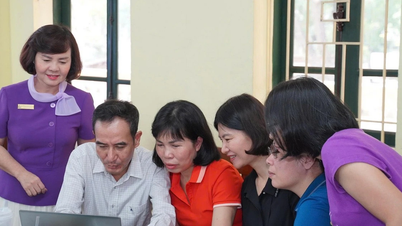
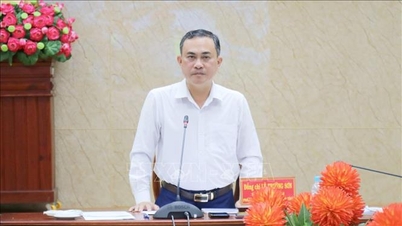
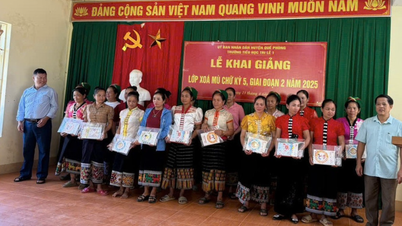
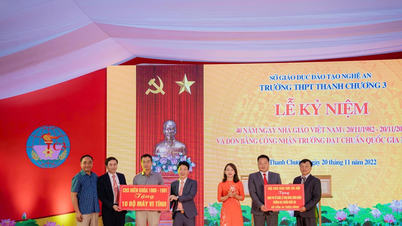
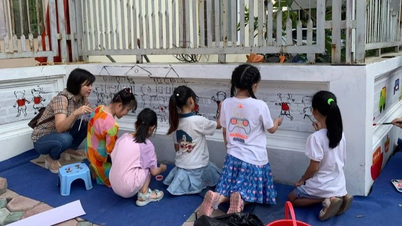











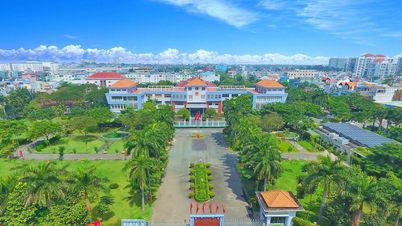
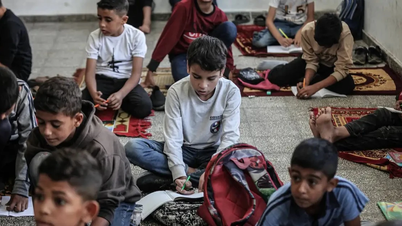
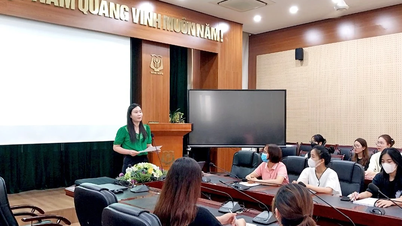


































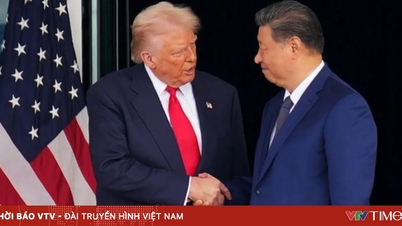


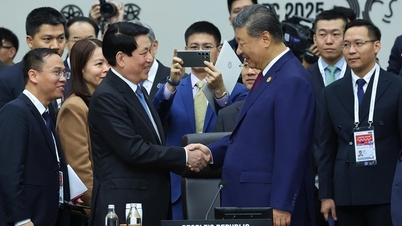
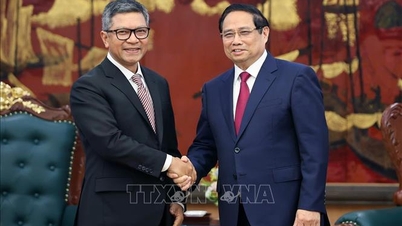
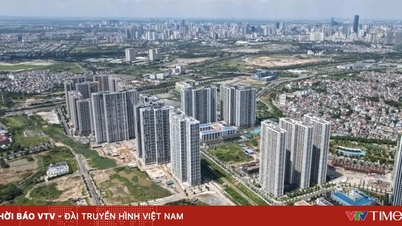





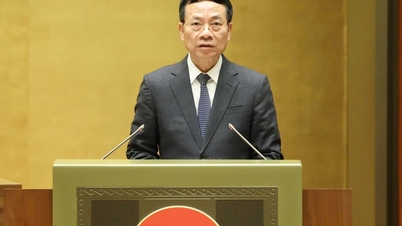







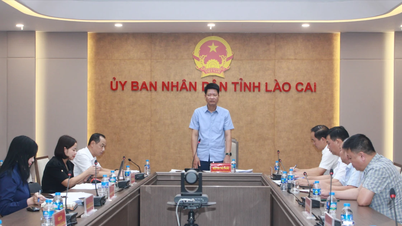

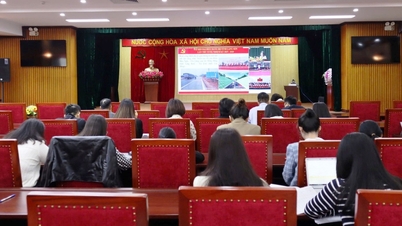

















Comment (0)